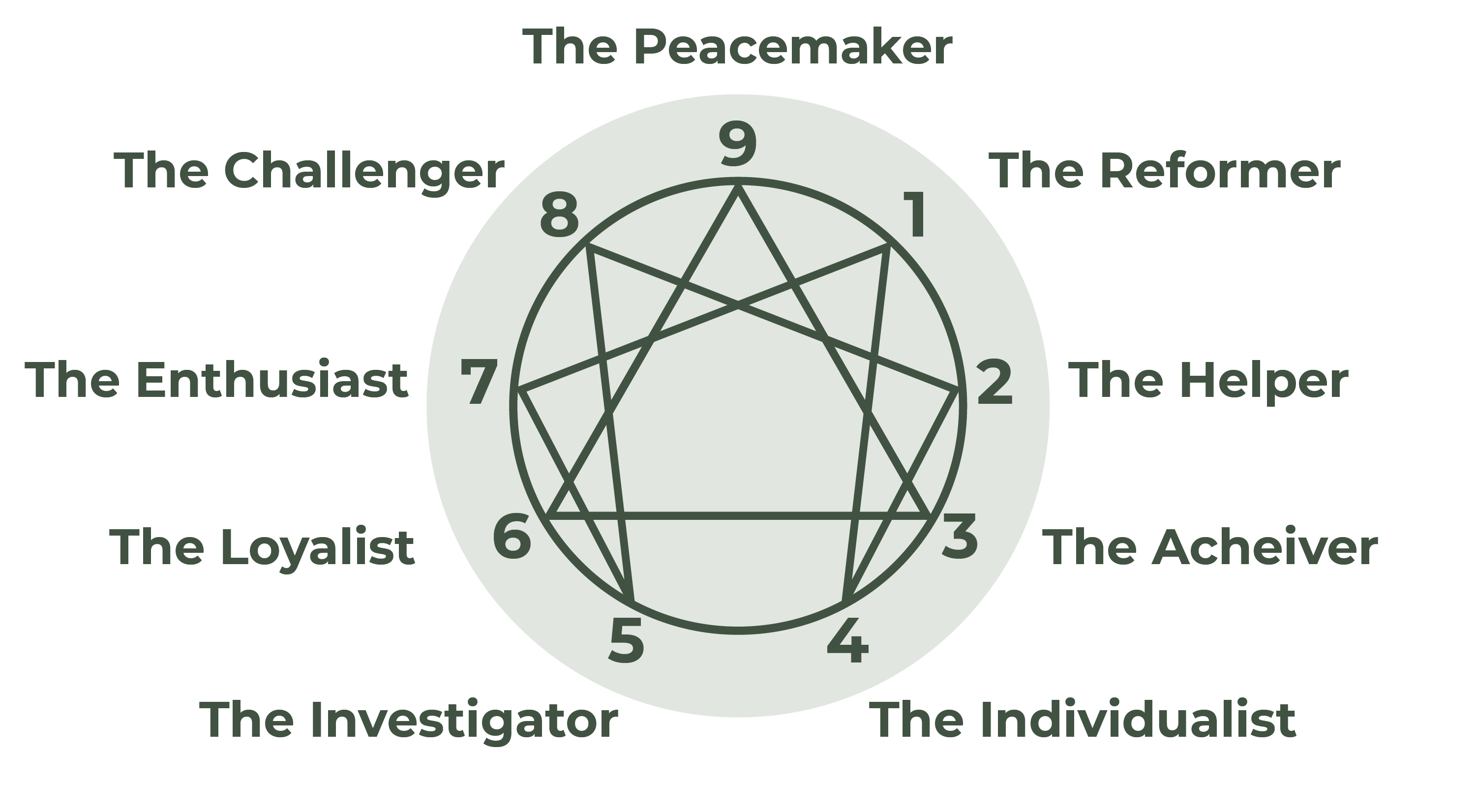Individual Therapy
- Individual-TherapyIndividual Therapy
- Marriage Counseling and Couples’ Therapy
- Grief Counseling
- Ketamine-Assisted Psychotherapy
- Mindfulness
- The Enneagram of Personality
- EMDR Therapy
- The Therapeutic Use of Poetry
- Telehealth

You can’t go back and change the beginning, but you can start where you are and change the ending.
–C.S. Lewis
I feel very fortunate to spend my days talking with people and helping them work through their personal difficulties and find greater joy and fulfillment in life. Most of my work consists of one-on-one individual therapy. I draw on psychodynamic theory, mindfulness, transpersonal psychology, cognitive-behavioral therapy, and a wide range of theoretical approaches. Typical issues that I work with include depression, anxiety, stress, grief and loss, situational difficulties, transitions, and change. I also enjoy helping people with personal growth, integration, and self-actualization.
I find the Enneagram of Personality useful in psychotherapy, both for helping clients understand themselves more fully, and for helping me understand and assist clients more quickly and completely. The Enneagram usually makes the process of therapy move more quickly and reach more deeply.
The sun is within me and so is the moon.
–Kabir
As a therapist, I aim to help my clients become more free, open, spacious, authentic, and compassionate with themselves and others; I work to help them connect with their true nature. It is also my intention to help clients have more satisfying and connected intimate relationships, and more joyful and fulfilling lives.
Marriage Counseling and Couples’ Therapy

For one human being to love another: that is perhaps the most difficult of all our tasks, the ultimate, the last test, and proof, the work for which allother work is but preparation.
–Rainer Maria Rilke
For most of us, marriage and intimate relationships are both deeply rewarding and challenging. Marriage is an essential part of life for most, and it may be difficult to imagine life without one’s spouse. Yet Rilke was not exaggerating when he wrote that loving one another is “the most difficult of all our tasks”. Most marriages struggle at some point, and many marriages struggle for years or decades. I enjoy doing couples therapy, helping couples find their way out of old fixed patterns of interacting into a more authentic, flexible, compassionate, and accepting intimate relationship.
I use the Enneagram in couples’ therapy. I find that the Enneagram helps people understand themselves and their partners better, and this understanding usually leads to greater empathy and compassion for their partners. The Enneagram, when used with an experienced guide, can create powerful opportunities for growth, healing, and reconciliation in relationships.
In couples’ therapy, I also make use of the work of John Gottman and Harville Hendrix.
I enjoy working with couples of all sexual orientations.
If you have more questions please see our marriage counseling page.
Grief Counseling

To live in this world
–Mary Oliver
you must be able
to do three things:
to love what is mortal;
to hold it
against your bones knowing
your own life depends on it;
and, when the time comes to let it go,
to let it go.
Yet that letting go can be so difficult. Unfortunately, our Western culture often underestimates how difficult grieving can be. Losing a dearly loved one can be one of life’s greatest challenges.
Western culture also pathologizes grief, treating it like an abnormal reaction. Real-life examples include the PCP who immediately prescribed an antidepressant to an individual in acute grief, and family members who insisted that a woman should have recovered from the death of her husband after only three months.
Grief is, in fact, a normal reaction to any significant loss or disappointment; the more significant the loss, the more beloved the deceased, the more intense the grief.
Often people are able to move through the grieving process on their own. Sometimes, however, grief is too intense for this. Sometimes prolonged grief leads to depression or complicated grief. In these circumstances, people can benefit from grief counseling. I specialize in treating grief and have received advanced training from The Center for Complicated Grief at Columbia University. My extensive background in mindfulness and Buddhist philosophy, which emphasizes the impermanence of everything in life, have also been useful in helping people come to terms with loss in an open-hearted way.
Ketamine-Assisted Psychotherapy

“[Researchers are] telling me that this looks to them like a revolutionary development in mental health care. I did my best to preserve my journalistic skepticism, but it’s hard when you see how excited these researchers are. They believe they’re on the verge of something really important”.
—Michael Pollan on psychedelic medicine
“Subjects see new dimensions in the universe, have strong feelings of being an integral part of creation, and tend to regard ordinary things in everyday life—such as meals, walks in nature, playing with children, or sexual intercourse — as sacred.”
—Stanislav Grof on psychedelics
Many practitioners in town are offering ketamine intravenous infusions, which have been shown to be an effective treatment for TRD and PTSD, but few are combining ketamine with psychotherapy. KAP is a promising, integrative approach to treatment that aims to combine the best of ketamine and talk therapy. Both ketamine infusions and Ketamine-Assisted Psychotherapy are off-label uses of ketamine; ketamine has been used for many years as an anesthetic, but the FDA has not yet approved its use in depression. However, research shows ketamine to be an effective treatment. Many drugs are commonly used off label. It has been estimated that 40-60% of prescriptions are for off-label drugs.
KAP, in contrast to ketamine infusions, pays attention to important psychological factors in your healing. It aims to optimize treatment by carefully preparing the client, offering a pleasant and supportive environment for treatment, helping the client integrate the insights of the ketamine experience, and by using all the available tools of psychotherapy. During KAP, the client always has a therapist present, which is often not the case for people receiving ketamine infusions.
I have considerable in-depth training in Psychedelic-Assisted Psychotherapy and Ketamine-Assisted Psychotherapy. In May 2021, I completed the Certificate Program in Psychedelic-Assisted Psychotherapies and Research at the California Institute of Integral Studies. This was an intensive ten-month training program. I have also received specific training in Ketamine-Assisted Psychotherapy from Polaris Insight Center in San Francisco. My training makes me uniquely qualified to provide KAP.
If you have more questions please see our Ketamine-Assisted Psychotherapy page.
Mindfulness

Enough. These few words are enough.
–David Whyte
If not these words, this breath.
If not this breath, this sitting here.
This opening to the life
we have refused…
Mindfulness is both a type of meditation and a way of living. Mindfulness emphasizes living in the present moment with awareness and compassion. It takes us away from ruminating about the disappointments, resentments, and pain of the past. It also takes us away from worrying about the possible problems and catastrophes that could be coming in the future. Mindfulness helps us live more fully and more peacefully in the present moment.
Mindfulness is about presence—being present, here and now, with awareness. Mindfulness can be profoundly useful in working with anxiety, depression, and other problems in living. A daily mindfulness meditation practice is a powerful self-management tool, a way of working with troublesome thoughts, moods, and feelings. Mindfulness can help us develop the capacity to observe our thinking and recognize that many of our thoughts are not accurate representations of reality and are not helpful. The concept of mindfulness was borrowed by modern psychology from ancient Buddhist philosophy.
I have a great deal of experience with mindfulness. I have had a daily mindfulness meditation practice for more than thirty years, and I have attended more than twenty-five mindfulness meditation retreats that each lasted from 5-7 days. I can personally testify to the value of mindfulness and meditation from my own experience; they have transformed my life, and this makes me uniquely qualified to teach mindfulness to others. I often teach mindfulness meditation to my clients.
If you have more questions please see our mindfulness page.
The Enneagram of Personality

The Enneagram teaches that there are nine different personality styles in the world, one of which we naturally gravitate toward and adopt in childhood to cope and feel safe. |
–Donald Miller
The Enneagram of Personality is a unique system of personality developed by Oscar Ichazo and later elaborated and further developed by the esteemed psychiatrist, Claudio Naranjo. It was then further developed by Don Riso, Russ Hudson, Helen Palmer, the Franciscan priest, Richard Rohr, and others. This system covers the whole range of human experience, from severe psychological disturbance to self-actualization, and also addresses the spiritual side of human nature in a way that is inclusive across spiritual traditions. The Enneagram is useful for the development of greater self-knowledge, and greater understanding of (and empathy for) others.
The Enneagram’s purpose is to help us uncover the traps that keep us from living fully and freely as our True Self so that we will use our unique, authentic gifts for the good of others and the world.
–Richard Rohr
The Enneagram has been useful in my own personal journey of self-understanding. As a therapist, I find the Enneagram helps me understand my clients more quickly and more deeply, and helps my clients better understand themselves. If clients do not know their Enneagram type when we begin therapy, I ask them to take the Riso-Hudson Enneagram Type Indicator (RHETI), which is available on the Enneagram Institute web site, as a way of beginning the process of discerning their Enneagram type. I use the Enneagram in individual and couples’ therapy, and usually my clients are surprised by how accurate and insightful the Enneagram is in describing their personality.
Part of the work I do in spiritual direction, particularly within the Enneagram system, is helping people understand the lens through which they see the world. Being able to identify it, helps us expand: this is how we limit ourselves, so what would it be like to live at full stretch?
–Sandra C. Smith
Beginning in 2012, I have studied the Riso-Hudson Enneagram extensively with Russ Hudson, Judy Cardoza, and others. I am currently receiving teacher training in the Riso-Hudson Enneagram from Russ Hudson and The Enneagram Institute. I have also completed certification in the Dynamic Enneagram with Tom Condon.
I am available for public speaking on the subject of the Enneagram.
EMDR Therapy

EMDR (Eye Movement Desensitization and Reprocessing) is a psychotherapy that enables people to heal from the symptoms and emotional distress that are the result of disturbing life experiences. Repeated studies show that by using EMDR therapy people can experience the benefits of psychotherapy that once took years to make a difference.
–EMDR Institute website
I have been doing EMDR for more than twenty years. I practice integrative psychotherapy, and I often augment EMDR with other compatible approaches to therapy, such as mindfulness and mind/body psychotherapy, for optimal results. While no therapist can promise that you will get better with therapy, I have been privileged to witness powerful transformations in many of my clients.
If you have more questions please see our EMDR Page
The Therapeutic Use of Poetry

Poetry arrived
–Pablo Neruda
in search of me. I don’t know, I don’t know where
it came from, from winter or a river…
and I wrote the first faint line,
faint, without substance, pure
nonsense,
pure wisdom
of someone who knows nothing,
and suddenly I saw
the heavens
unfastened
and open…
I find that poetry can be useful in the psychotherapy process, and I make use of the work of great poets when it seems a good fit for the client. At their best, great poets discover and articulate profound truth in a way that grabs the attention of the reader, bypasses defenses and sometimes facilitates change. Poetry can offer a quick snapshot of greater truths and more accepting and adaptive belief systems that may appeal to clients in an organic fashion. Poetry also often serves to reframe the client’s experience, offering a larger, more compassionate, and generous narrative for the client’s life. I work with the poetry of Rainer Maria Rilke, Rumi, Kabir, David Whyte, Mary Oliver, Wendell Berry, Robert Bly, Naomi Shihab Nye, Jane Hirshfield, and many others.
When clients are interested, I also encourage writing poetry and journaling as a therapeutic activity. Writing can be a valuable tool for developing a larger and more generous narrative of one’s life. I find that poetry can be particularly useful in this regard; it gives the client both a discipline for working with the story of his or her life and the opportunity to create something of beauty, which often makes the experience of life more meaningful.
Telehealth

I also provide individual and couples therapy via Teletherapy, using Doxy.me, a HIPPA-compliant video platform that protects your privacy. Doxy.me encrypts the audio and video signal before sending it over the Internet and does not record the therapy conversation. During this temporary time of national crisis stemming from the COVID-19 pandemic, I am conducting all of my therapy sessions using Teletherapy. I will continue doing so until it is considered appropriate and safe to meet one-on-one again.
We describe our options in more detail at our Teletherapy Page.

